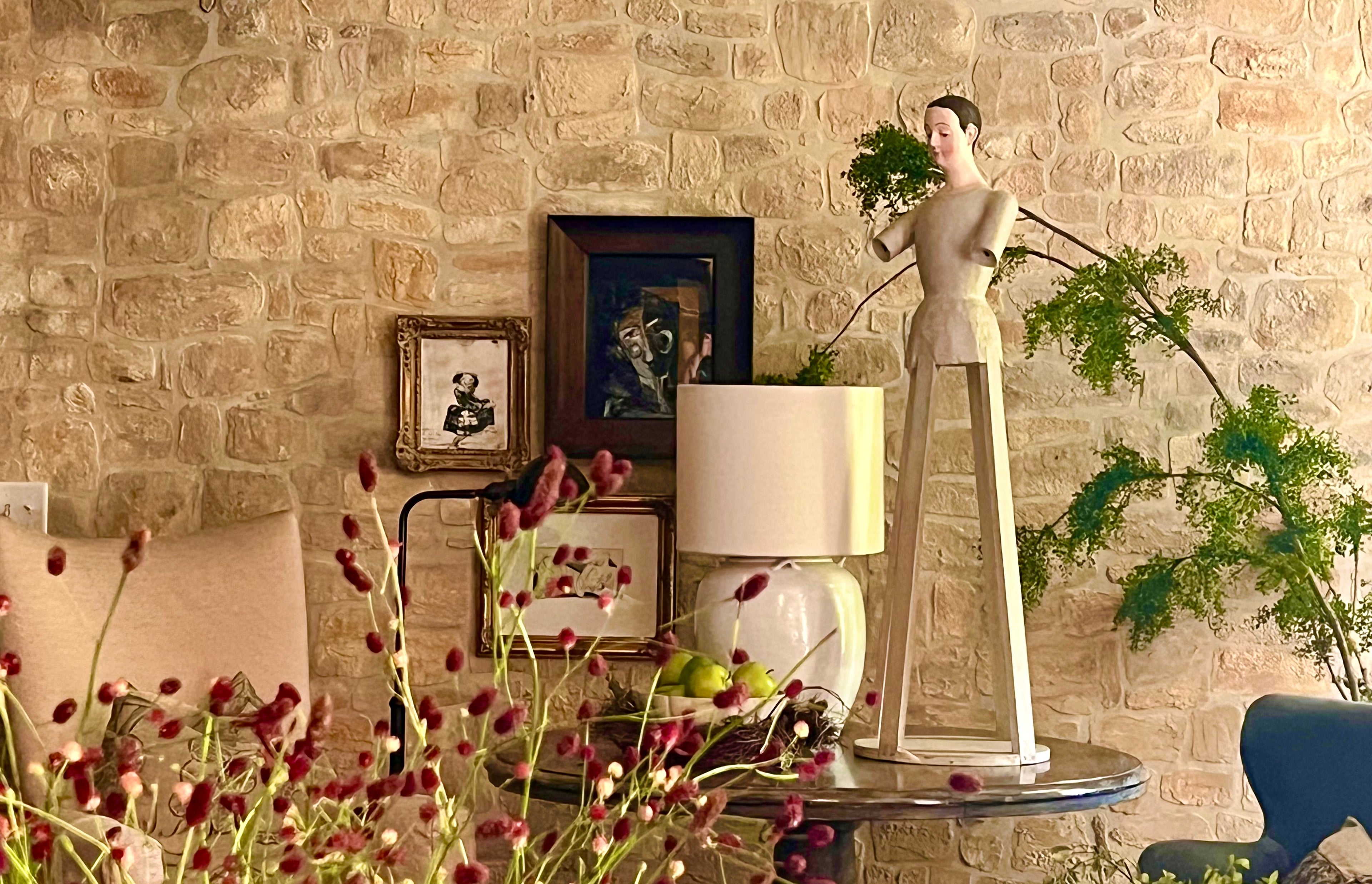How to sanitize and care for cutting boards and butcher blocks.
Share
I have been researching methods and products to help clean and preserve the antique cutting board I found on my recent trip to Arizona. My hope is that, in my care, it will be passed on and last for generations to come.

I loved the petite, round cutting boards!
Like a person, wood was once a living thing. Wooden accessories, being made of natural materials, have a history to tell. A wooden object that was loved and cared for by the person who made it fascinates me. If a wooden object is properly preserved, it will outlast the person who originally made it. Like all natural materials, wood is subject to decay. Today I will share some simple tips about caring for the hand crafted, wood treasures in your kitchen.

I took this cutting board home with me. It was very dry and in need of some love!
Technically wood can last forever if it’s not attacked by insects, water or bacteria; oils and preservatives can extend its life by preventing rotting. Mineral oil (sometimes call liquid paraffin) is a non-toxic product derived from petroleum that is colorless, odorless, and flavorless. Wood absorbs water like a sponge. The properties in the mineral oils prevent water absorption. It’s a popular choice to protect wooden kitchen utensils.
There are different types of mineral oils and not all of them are safe for human consumption.What you are looking for is “FOOD SAFE” Mineral oil. Make sure to read product label if you are unsure of its proper use.

This brand of mineral oil and conditioner are food safe!
Regular applications of mineral oil will prevent cutting and butcher boards from becoming dry and brittle, which causes the wood to crack.

Butcher block after several applications of the mineral oil. It looks beautiful and rich!
A board that is treated with minerals oils will prevent the liquids from penetrating the wood, which is often the source of germs and bacteria.

This cutting board has been previously treated with mineral oils, notice how the oil prevents the water from penetrating the wood.
Removing stains from your cutting boards:
You can use baking soda to remove stains from a cutting or butcher blocks. Simply sprinkle the baking soda over the stain and rub with a sponge dipped in hot water. Rinse well.
Sanitizing:

Sanitize with lime or lemons and salt.
Cut a lemon or lime in half, dip it in salt and run the salted lime across the entire board surface. The ascorbic acid in the limes (or lemons) reacts to and oxidizes organic material (bacteria and fats) that is the cause of odors and stains. The natural lemon oil also forces any soluble materials to be removed as well. After cleaning and sanitizing your boards, squirt some of the mineral oil on the surface and wipe it with a rag. Let it dry. Wipe off any excess oil.






Today you can find all kinds of antibacterial cutting boards on the market, but they lack the warmth, interest and character that wood pieces add to a room.
Sanitizing and oiling your cutting boards and butcher boards will keep them functional and looking beautiful for years to come.


Until next time, adios!
Rosalia

